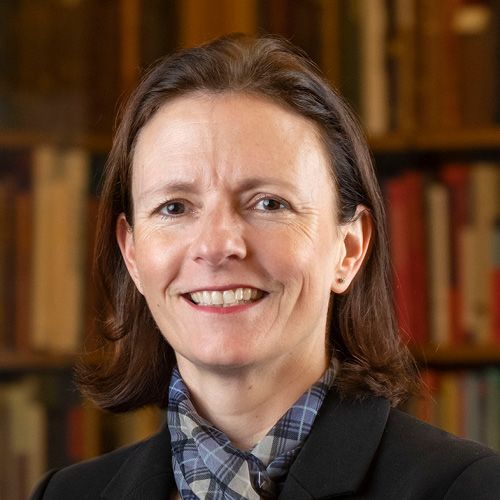Still far from
gender parity


Clare Mcnight: RCSEd Vice-President
Every year on 8 March organisations around the globe take time to celebrate and recognise the achievements of women throughout history. This tradition started in 1909, a year after 15,000 brave suffragettes in New York City marched in protest against the oppression of women, demanding better workplace conditions and equality in pay.
In most parts of the world women’s rights have progressed significantly, but this annual reminder helps us raise awareness of current challenges women face in modern society and prompts us to reflect on specific issues that affect women in our profession.
Lagging behind
Over the past 30 years of my career I have witnessed a change in the gender demographic of the surgical workforce, with women being better represented at all levels. Sadly, women in the surgical workforce are lagging significantly behind other medical specialties: many have already reached gender parity, whereas we are only at 35%. So what is putting women off from choosing a surgical career?
If you look at the literature in relation to this question, there is the perception that working hours are high, training programmes are long and achieving a work-life balance is difficult. There have been many national initiatives to help deal with this, such as the expansion of less than full-time training, but despite this many women still drop out before completing training. When asked why, they often say it was nothing to do with the workload, but due to the endemic workplace culture of undermining, bullying and sexual misconduct that pervades our modern NHS.
“Over two-thirds of women have been subject to sexual innuendo, groping and sexting”
Like many, I was shocked at the extent of these unacceptable behaviours, which was highlighted in the recent Working Party on Sexual Misconduct in Surgery (WPSMS) report Breaking the Silence. In a survey of more than 1,400 surgical team members, over two-thirds of women (and 24% of men) have been subject to inappropriate sexual innuendo, groping and sexting. And 1% were subject to the criminal offence of rape. This is unacceptable and must stop.
As a College, we have embarked on measures to respond to this report. We have updated our code of conduct and ask all to consider your behaviour and be aware of the privileged, and often powerful, position you have over many of your colleagues and younger trainees. We have relaunched a new national poster campaign, #LetsRemoveIt, to highlight the issue and signpost to resources for help.
Bold initiatives
Under the guidance of our ex-Trainee Committee chairs, Alice Hartley MBE and David Riding, we have commenced a new conflict resolution course, which will equip you with the skills to de-escalate difficult situations and be confident in calling out poor behaviour in a safe manner. We are also working with our sister Colleges, the WPSMS, the GMC, the statuary education bodies and NHS employers to devise an independent reporting and investigation body to intercede on behalf of those affected and ensure perpetrators are sanctioned.
On a more positive note, and in keeping with International Women’s Day, I would like to pay tribute to Alice Hartley, who was recognised in the New Year’s Honours List for her services to the NHS. She is a modest, quiet individual who manages to balance her career as a consultant urologist with an expanding family (following surprise twins). Despite these challenges, she has been the driver of College innovations aimed at improving the working lives of her colleagues. She was rightly awarded the prestigious Hunter Doig Medal in 2018 by the College in recognition of her leadership and we are delighted she has now received this national award. I look forward to watching her stellar career continue.

